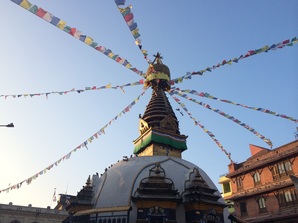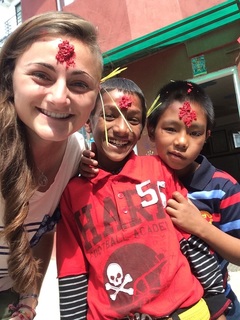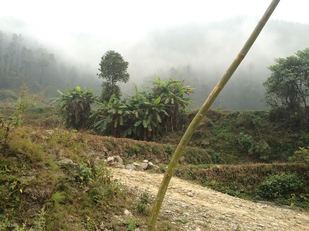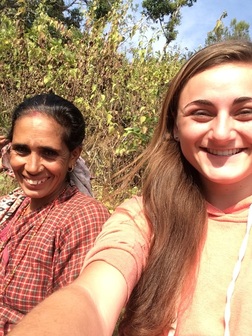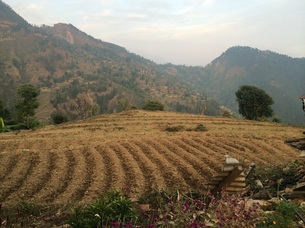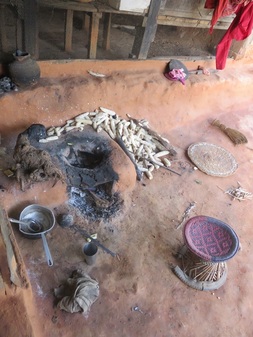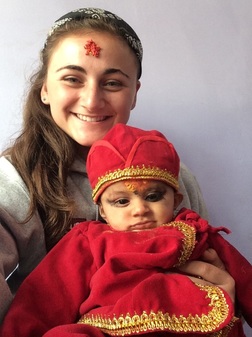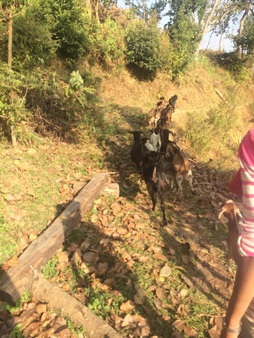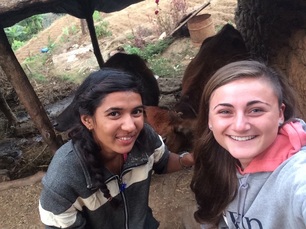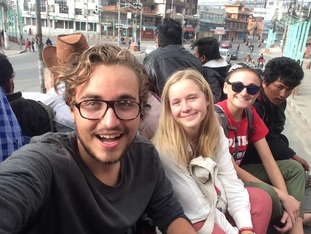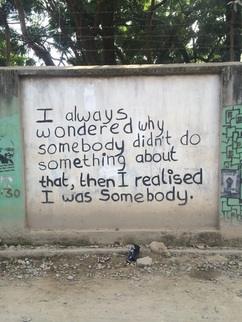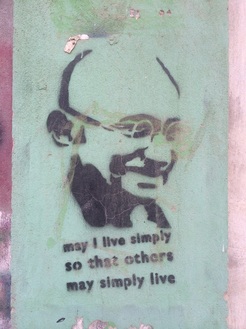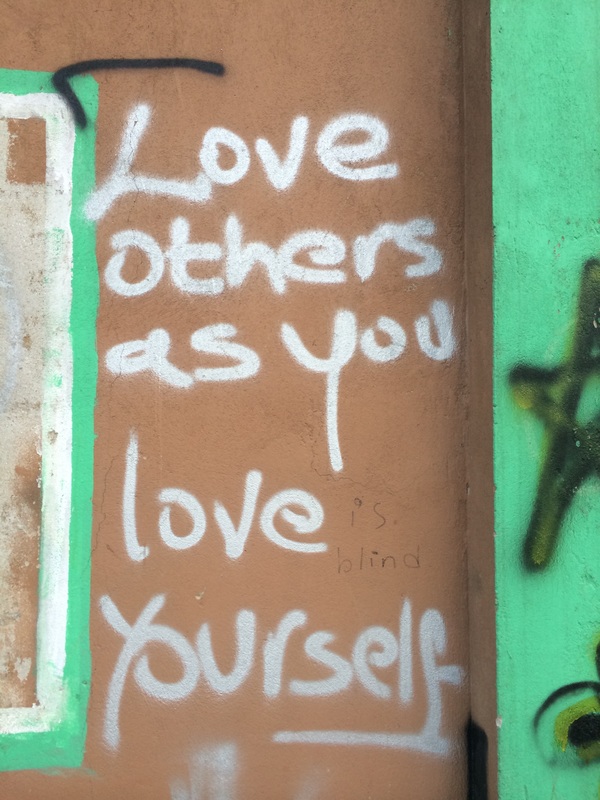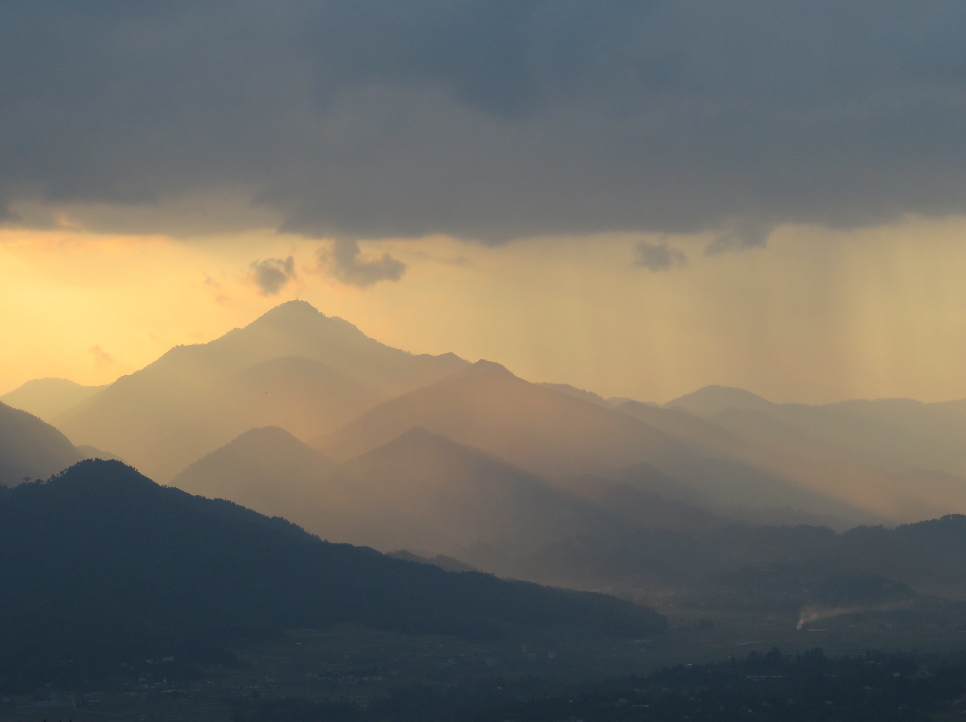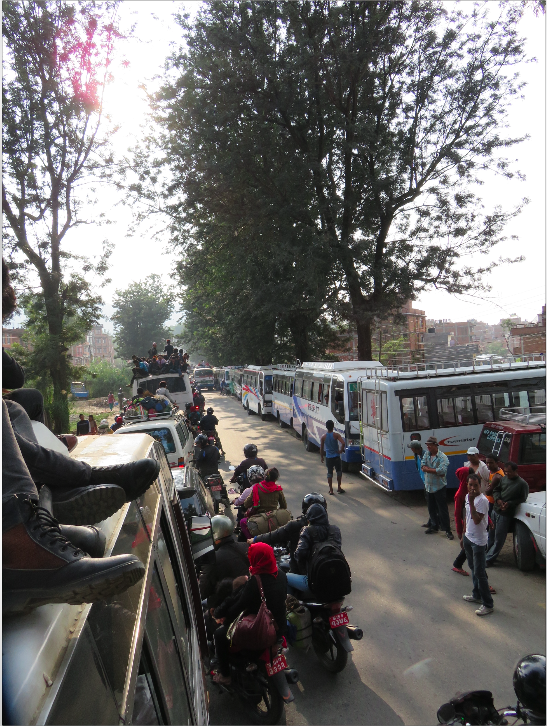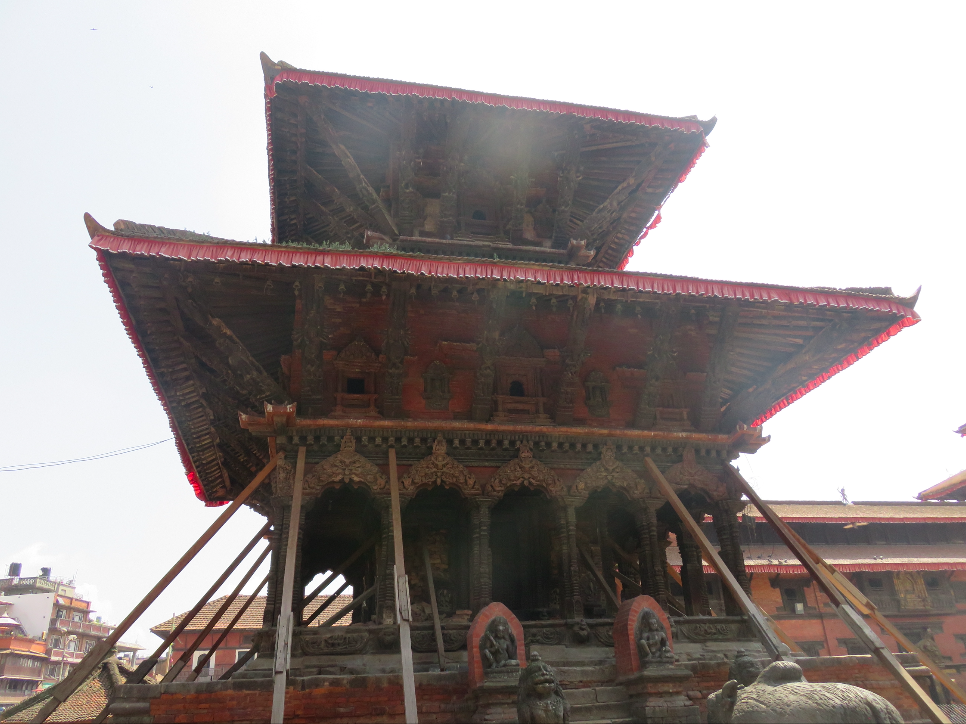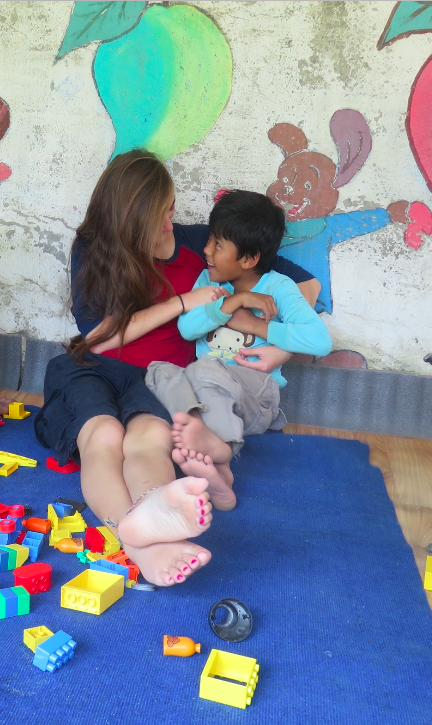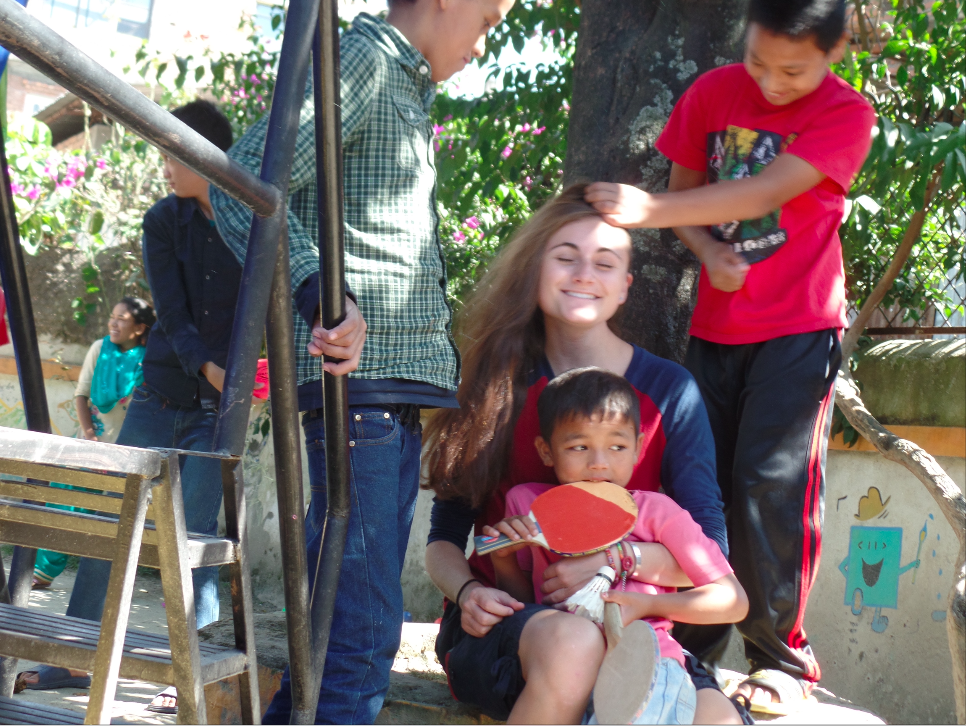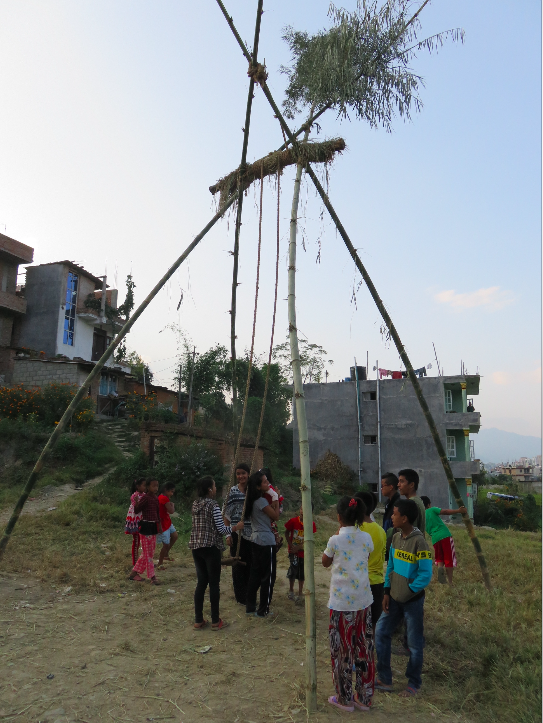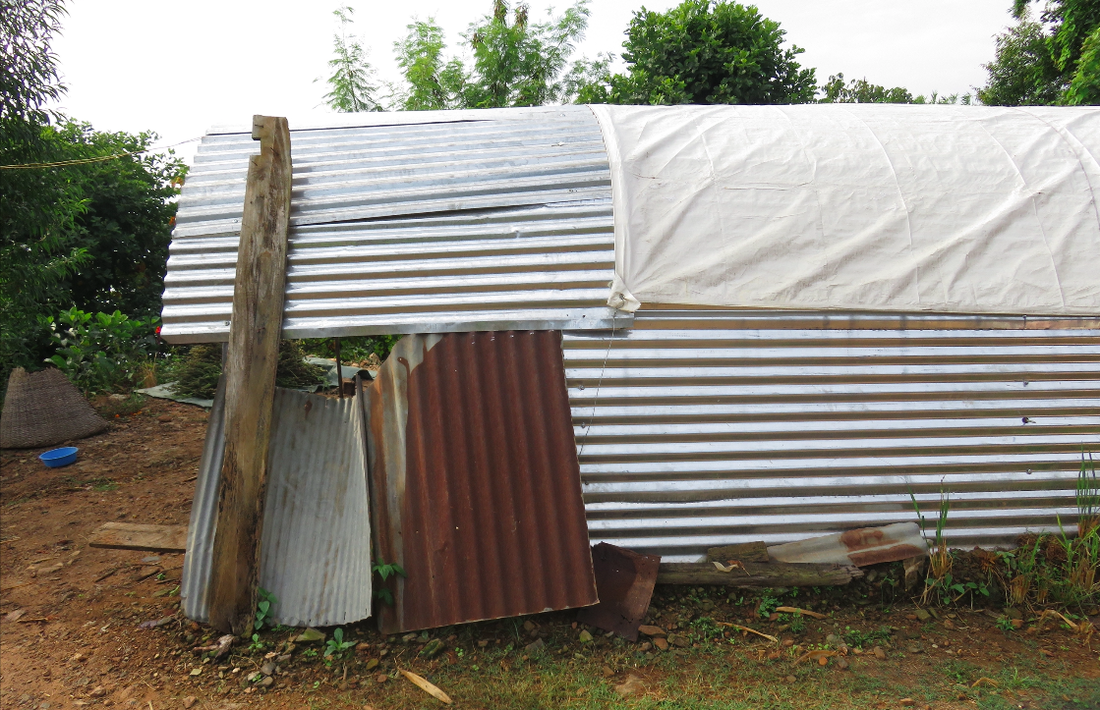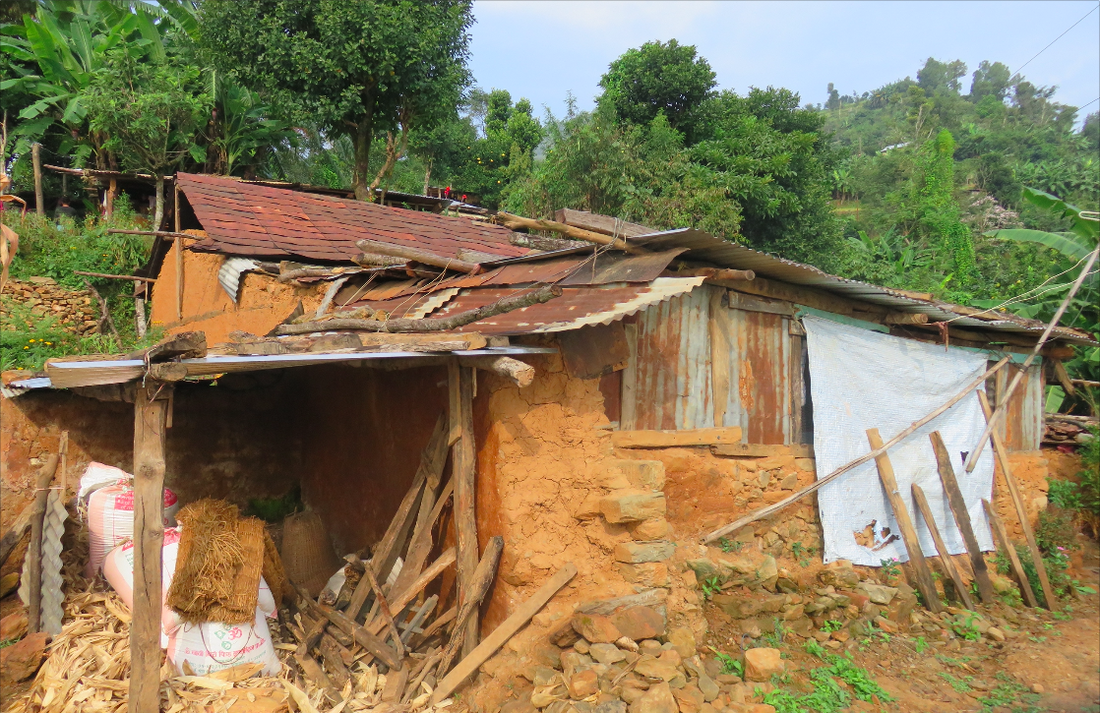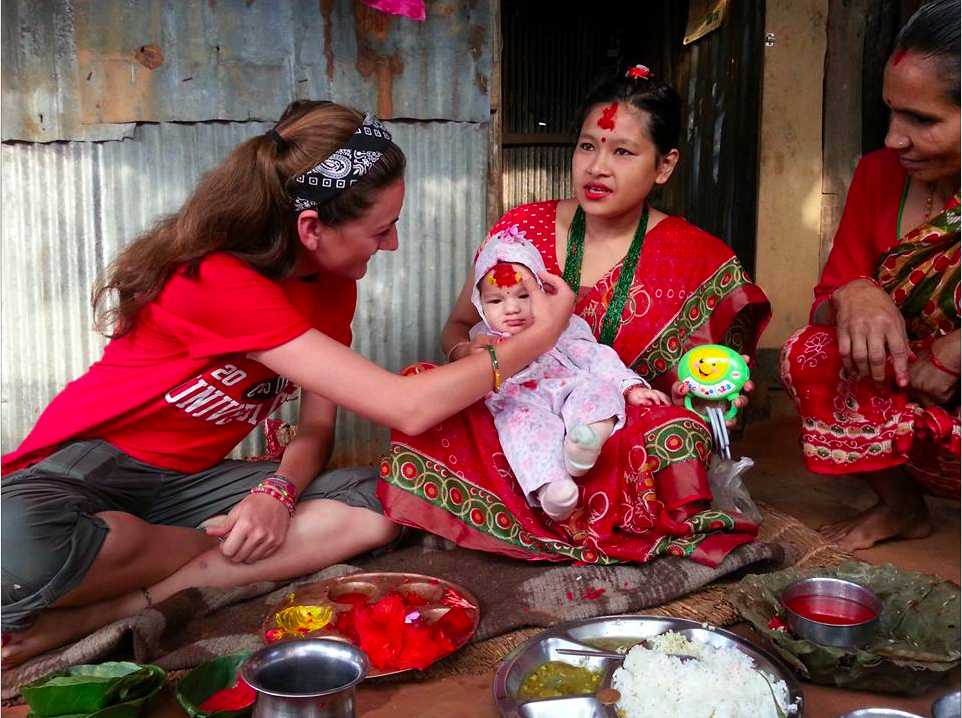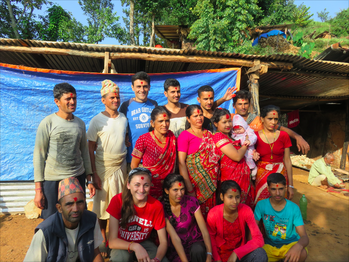| People often ask me which country I've visited so far has been my favorite. After thinking about the cruelty of the question, I usually respond with, "I love them all so much, but Nepal feels like home to me." In an email from my former teacher Mr. Henry, he wrote, "You may ask yourself along the journey as I did when I was a young man living in Africa - How can these people who have so little economically be so happy? Why do these little kids so impoverished smile so readily? Its because they have each other!" There is no denying that Nepal has its hardships-- from losing thousands last year due to earthquakes and a blockade that has been described as a massive human rights violation. But even though Nepal may not be rich economically, it is rich in love and a definition of family that penetrates genetics. The people around you are more like your family, and your family is more like an extension of your own being. After spending a few weeks on childcare and building projects, I felt unfulfilled with what I had been doing in Nepal. I came because I wanted to make a difference in people's lives after many had suffered so much, but I didn't feel truly content with what I was doing. Like my typical self, I kept these feelings buried because I didn't know how to react to them. Luckily my friend Richard expressed the same concerns and decided that he was going to leave the project we had been working on to find a better way to spend his time. Because of his outspoken criticism and honesty, I gained the courage to follow his lead. I wasn't sure how I wanted to spend the remainder of my time in Nepal, and after spending hours talking to my friends, family, and Phil, the head of EHN, I finally knew what I wanted to do. I mentioned the idea of going back to the village I had been to, and in reference to Harkapur, he said to me, "Don't underestimate the power of just being there." His words gave me the goosebumps. On my previous visit I felt that I was just another mouth to feed, but now I vowed to contribute in every way I possibly could to the people who took me in and considered me family. A four hour bus ride and three hour hike later, I heard the trickling of a water spout and was greeted with a great "Namaste" from my Auntie. I had finally made it home. There was no feeling like being back in Harkapur. From the moment I sat down with my family again sipping on our dudh chia, I knew I had made the right decision. Over the next few weeks I kept to my promise of doing everything I could to contribute to the village. This ranged from harvesting rice, spinach, and corn to shepherding goats and teaching the villagers English. Being the only volunteer and native English speaker in a remote Nepali village posed many challenges, but the experience was the most remarkable thing I have ever done. I emulated the village lifestyle as best as I could, following cultural and religious customs despite my hesitations or ignorance. Although at times the language barrier made communication more difficult, my time in Harkapur taught me how to communicate with people in ways other than speaking. Body language became much more important, and Phil's words repeated over and over in my head. "Don't underestimate the power of just being there." Even though I couldn't speak fluent Nepali or understand much of their conversations, it was a high compliment that out of anywhere in the world, I chose to be in their small village. And they chose to have me back. I have many fond memories from Harkapur, like having my Amma and Didi show me how to shower outside as the entire village crowded around and laughed at me. There was also the feeling of riding down the mountain with Arjun on his motorcycle, and seeing my village-dwelling family have a day off to celebrate the feeding ceremony of our nephew. There were also the cold nights spent with my family huddled around our wood fire making kua from bufallo milk. There was the wonderful feeling of being invited to other houses for tea or a meal. In Harkapur I felt a profound connection to the people and world around me. I felt I had returned to an earlier time in which technology and electronics hadn't overpowered the importance of human relationships. I learned how extremely important it is to be present and surround ourselves with people who love us and who we love the same. On my last day in Harkapur I packed my bag and said goodbye to my great big Nepali family. The hardest goodbye was to my Amma, who had taught me so much about love and hard work since I had been there. When I opened up my arms to hug her, not the typical sort of affection that Nepali people show, she welcomed me in an embrace and hugged me back so tight I could barely breathe. In that moment I knew the time I spent there was as important to the villagers as it was to me. With flowers again in my hands, I headed down the mountain and back to, as many would call it, "civilization". Since returning home, I often think about all the lessons I have learned over the last five months of traveling and volunteering. I miss the smiles in the Philippines, the beautiful people of South Africa, and the love in Nepal. The places I've been to and the people I've met have taught me that just because society is telling you something, you don't have to listen. Material goods and technological advancements will not make you happy or fill a void you may have. A bigger house and a new car won't replace love. The happiest people I've met are the ones who have followed their desires to travel, to volunteer, or to turn their wildest dreams into a reality despite any hesitations or lack of support. The world will keep on spinning, the sun rising and falling, and it won't stop for anyone. So ask yourself this-- Do you feel fulfilled? Have you found your passion? It is never too late to start a journey. You could be a Richard who encouraged me to follow my instincts, and stopped what he was doing to set up an organization to help rebuild Nepal (http://www.sdfnepal2015.org.au). You could be a Phil who taught me the importance of having genuine human relationships and the power of presence. You could be a Niko who was my best friend every day in Nepal, supporting me, riding on the roofs of buses with me, and, of course, never failing to make fun of me. Most importantly, you have the power to create a newer, happier version of yourself. I certainly have. To everyone I met in Nepal and to the country itself, I thank you from the bottom of my heart. You challenged my perspectives, made me laugh and cry, and encouraged me to live a life full of passion. You taught me that what I do, what I think, and how I act truly matter. Dhanyabad. "There is nothing like returning to a place that remains unchanged to find the ways in which you yourself have altered." - Nelson Mandela |
|
1 Comment
|
EHN
For my third destination I am volunteering with Education and Health Nepal. |
